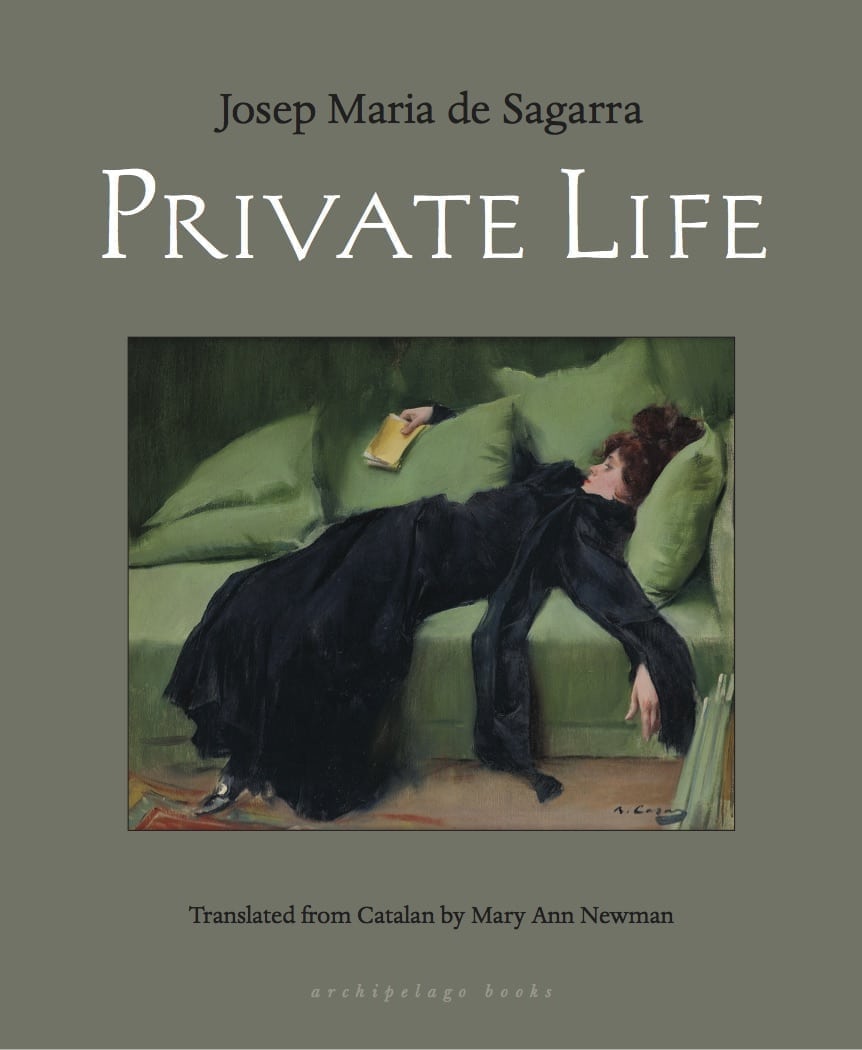Praise
A satirical, multigenerational saga about the intricate relationship between Barcelona's fading aristocracy and the city's sordid demimonde... Expect murder, revenge, and fallings in and out of love ... The novel comes most alive when the author digresses from his plot: in his characters' back stories, his ruminations on Spain's socioeconomics, his cleverly vicious bons mots and descriptions ... and in some surprisingly graphic sex... In this casual, colloquial translation, Barcelona between the wars is full of tawdry vitality, much like the novel itself.
[Private Life] is a portrait of the "great world" of Barcelona and its loyalties in the years that preceded the Republic and in the early days of the new regime. Rigorous contemporaneity, stylistic effectiveness, the structural tour de force...and its daring treatment of manners and mores, make this book a unique product in Sagarra's work as a whole.
Determined to produce a raw and gritty representation of the fallen Barcelonan aristocracy, Sagarra wrote Private Life, a novel heavily censored in its time and just recently brought to English readers. Through Mary Ann Newman’s accessible translation, the vibrancy of Sagarra’s narrative speaks with nuance and clarity, enwrapping readers in the tantalizing downfall of the aristocratic Lloberola family.
Private Life, by Josep Maria de Sagarra is a delightful, intelligent and exciting novel, the best ever written about Barcelona. One of the high points of 20th century Catalan and European literature, it is an unflinching portrait of the social mores of the high and low classes, the desire to be someone, and the destruction of a way of life. The changes that came about in the 20s and 30s have led inexorably to the Barcelona of today. Now that the city is in vogue, it is providential that the millions of people who visit every year will be able to read Private Life.
In Private Life, Josep Maria de Sagarra orchestrates the destiny of a rich, decadent family, sucked into an underworld of sexual and economic scandals. Though the events could be happening today, they take place in the late 1920s, when the night life of Barcelona was as intense and provocative as that of early 20th century Berlin or Paris.
"What really makes Private Life a compelling read are Sagarra’s vivid details of this crumbling society and his keen observations about it...thanks to Mary Ann Newman and her sparkling translation, Sagarra’s masterpiece is finally available in English.
[A] graphic and viciously funny Catalan social satire... This is a risqué novel, sustained by humour and a sleazy elegance, all steeped in ironies
Private Life is a scathing satire of class and privilege in the tradition of Evelyn Waugh and Nancy Mitford. However, the novel’s vivid tableaux of a Barcelona undergoing radical societal change are exclusively the skilled handiwork of Josep Maria de Sagarra.
Extras
For an expanded biography, list of works, historical context, and links to a variety of Catalan websites dedicated to Josep Maria de Sagarra, visit Lletra, an online project created to inform English-language readers about Catalan literature.
The Catalan magazine Visat has an online, English-language profile of Josep Maria de Sagarra’s dramatic works.
Visat has also published a report that investigates the status of literary translations into and from Catalan. A summary of the report is available as well.
The Institut Ramon Llull, an organization for the promotion of Catalan language and culture abroad, held a very successful launch event for Private Life in Barcelona. In attendance: Margarida Casacuberta, a professor at the University of Girona; Mary Ann Newman, the translator; Perico Pastor, a painter and illustrator; and Àlex Susanna, the director of the Institut Ramon Llull. Video is below:

